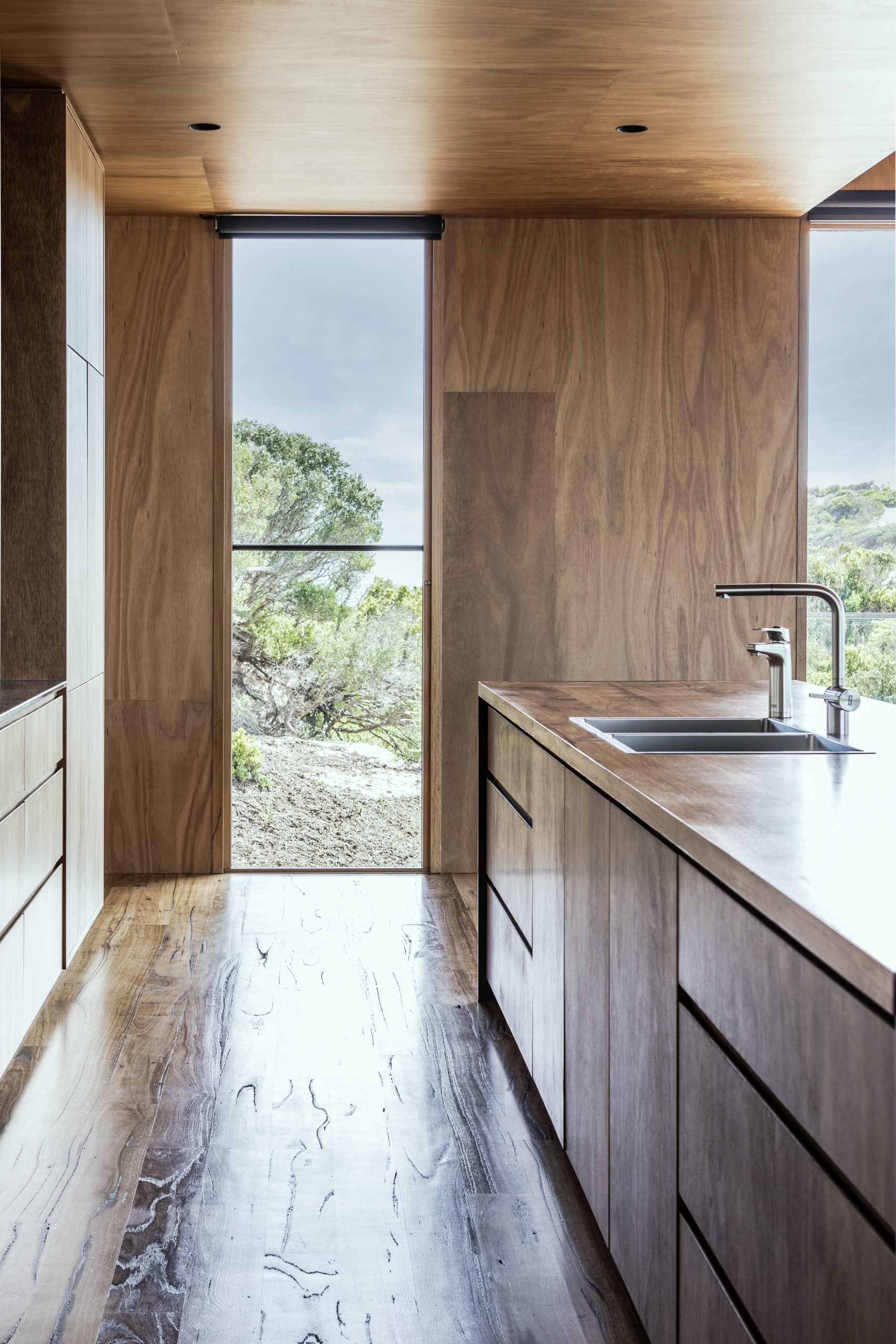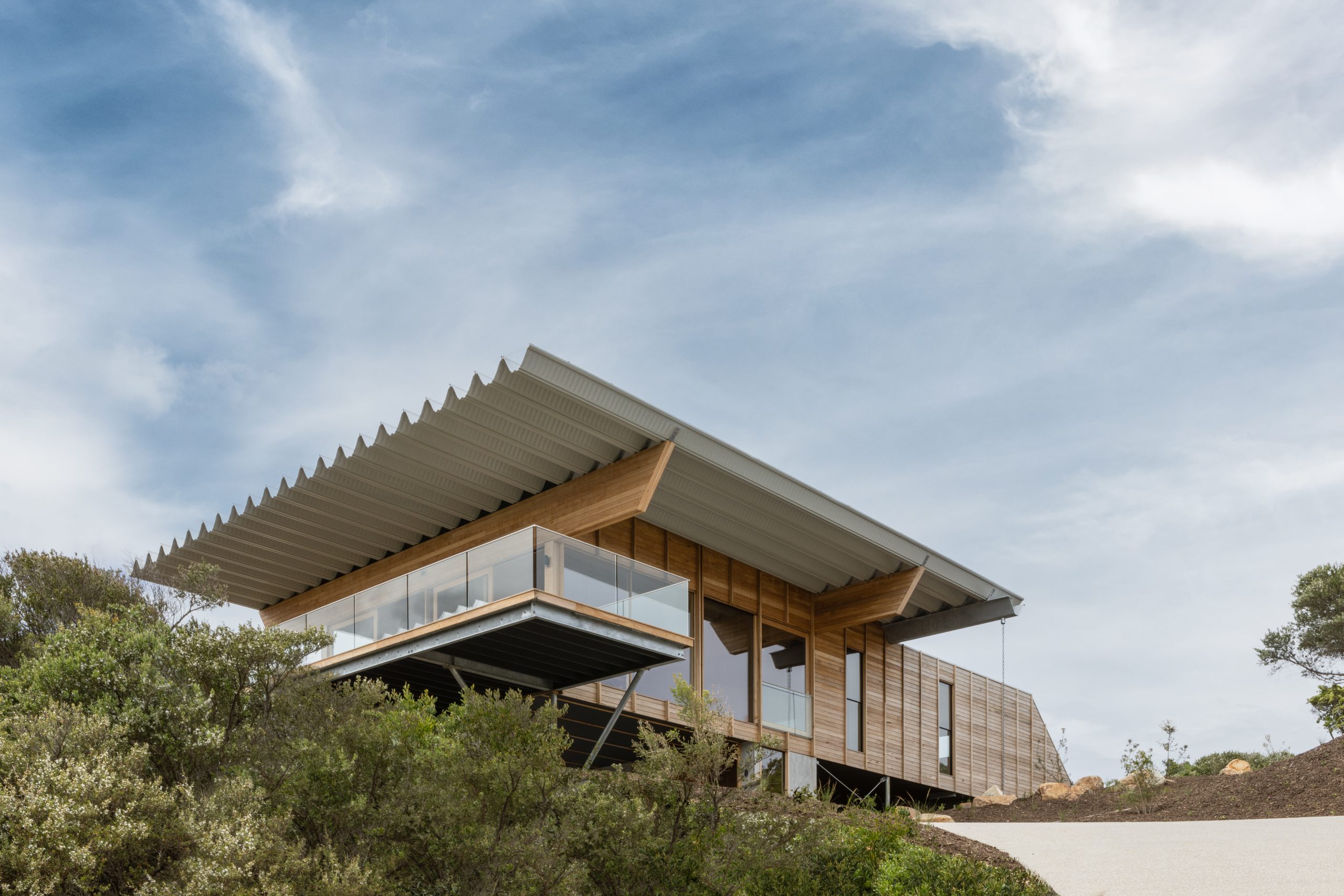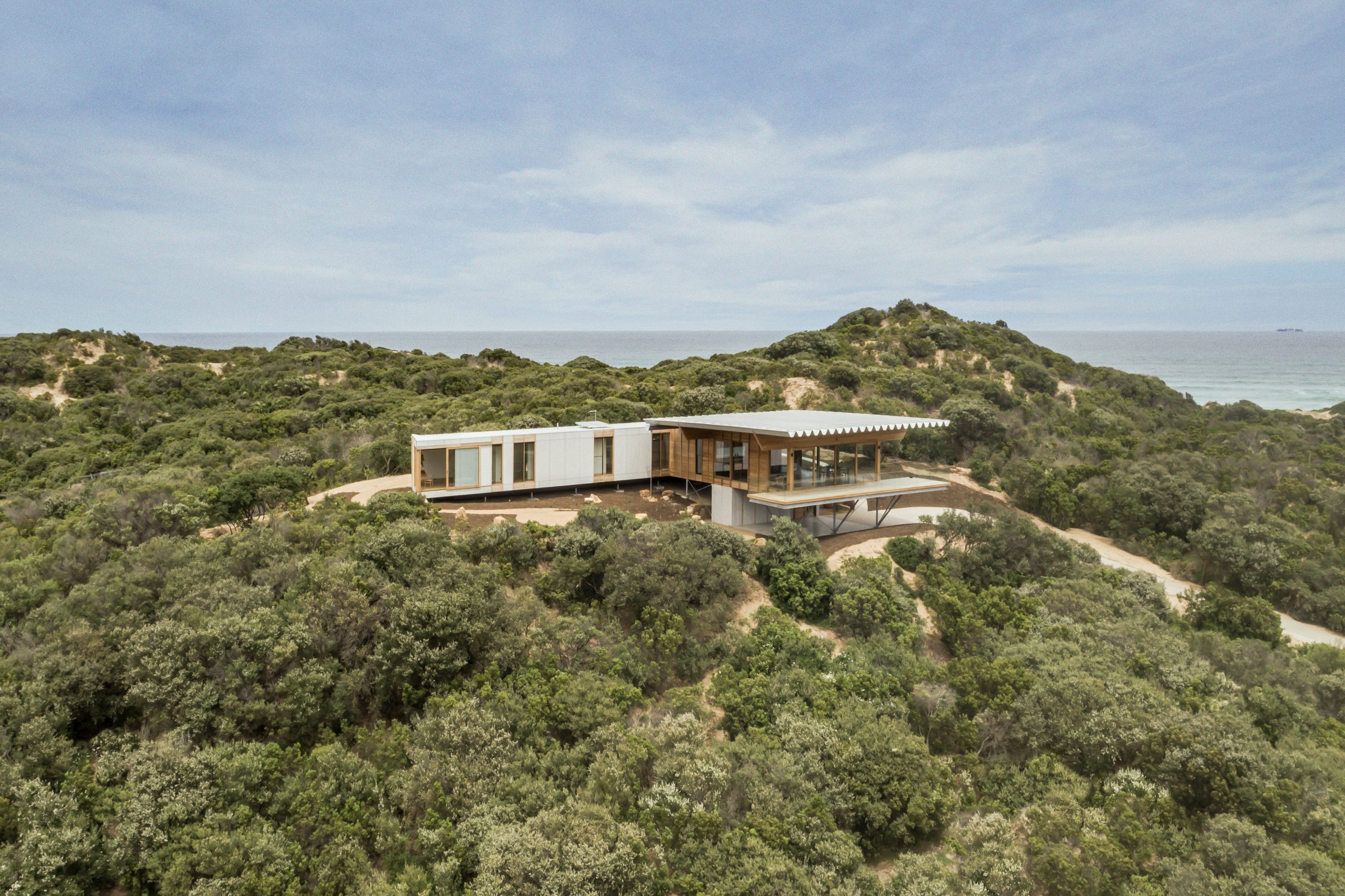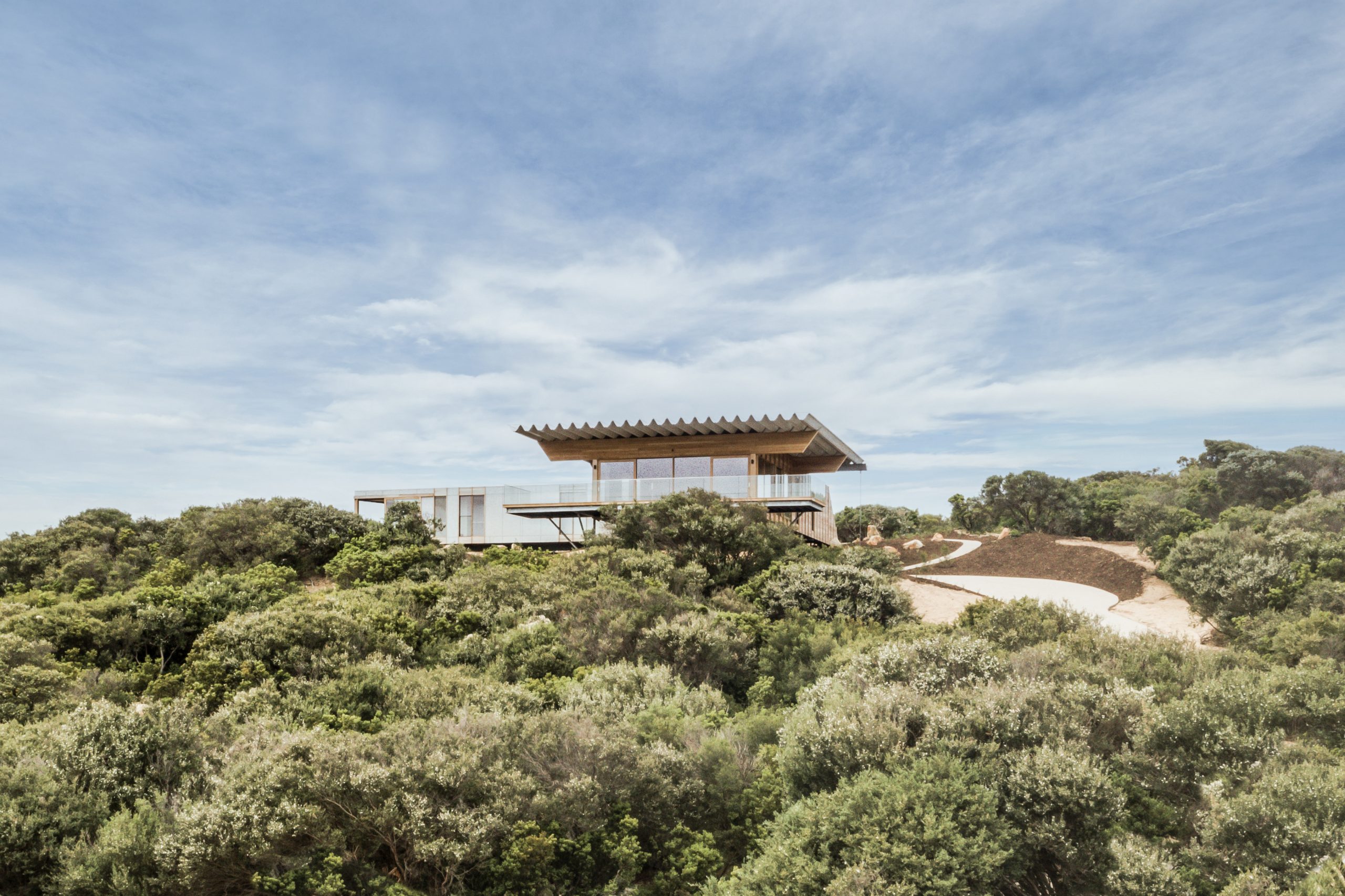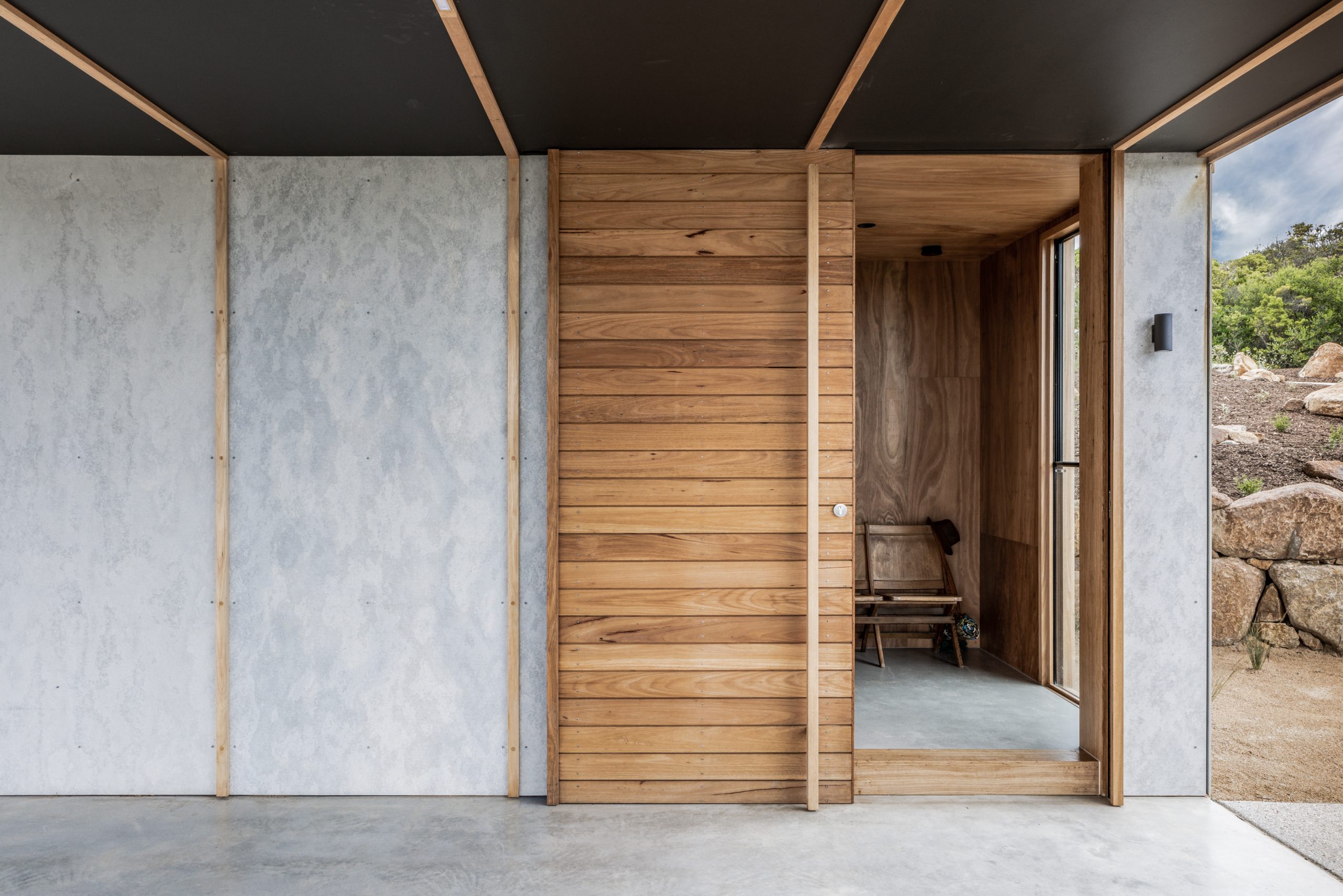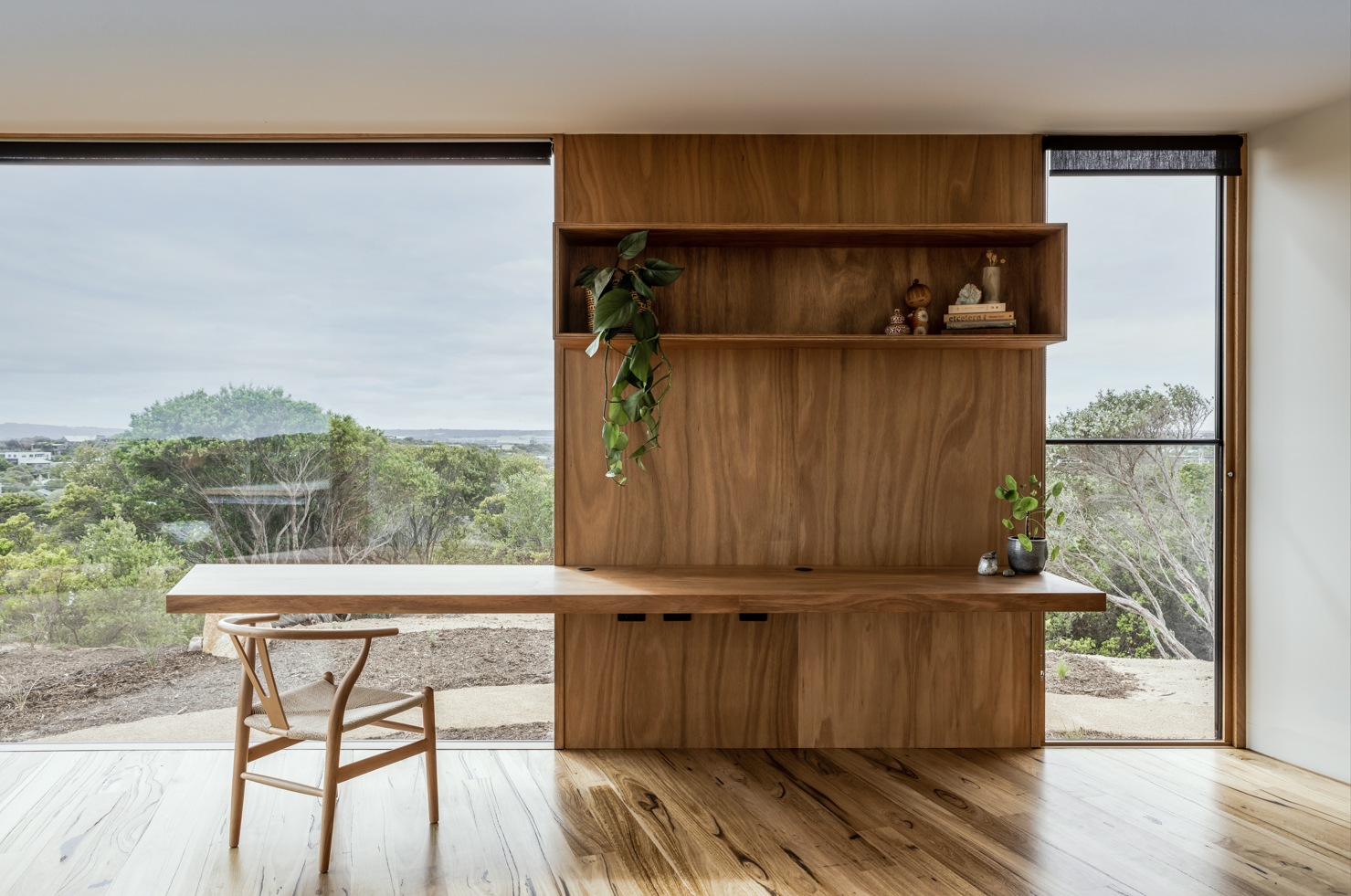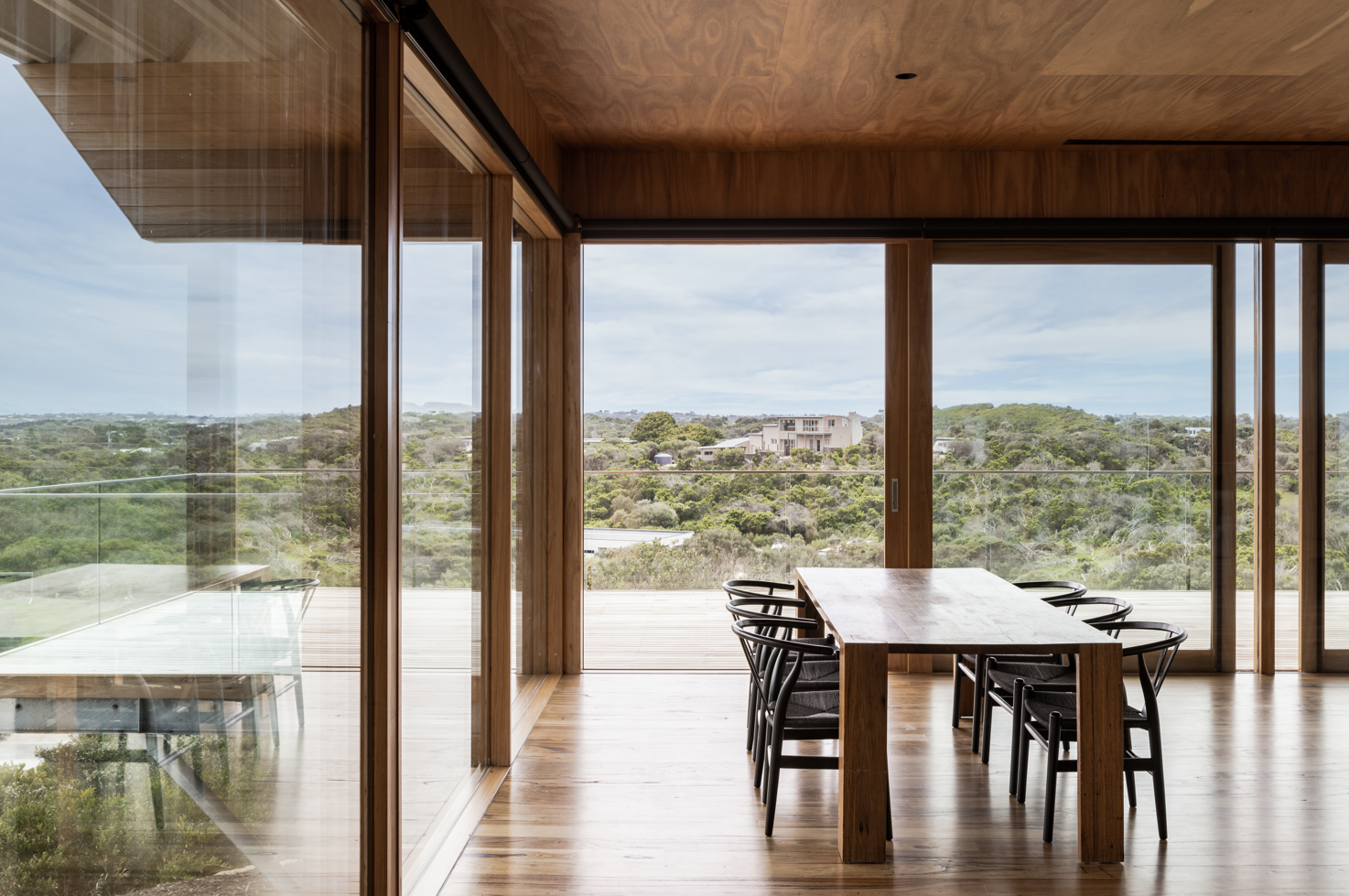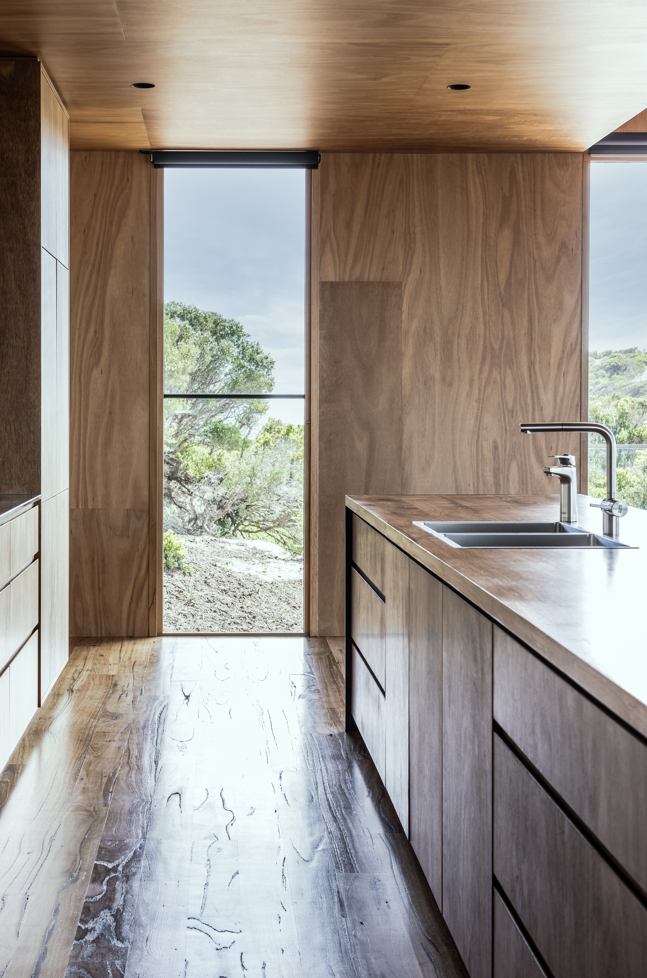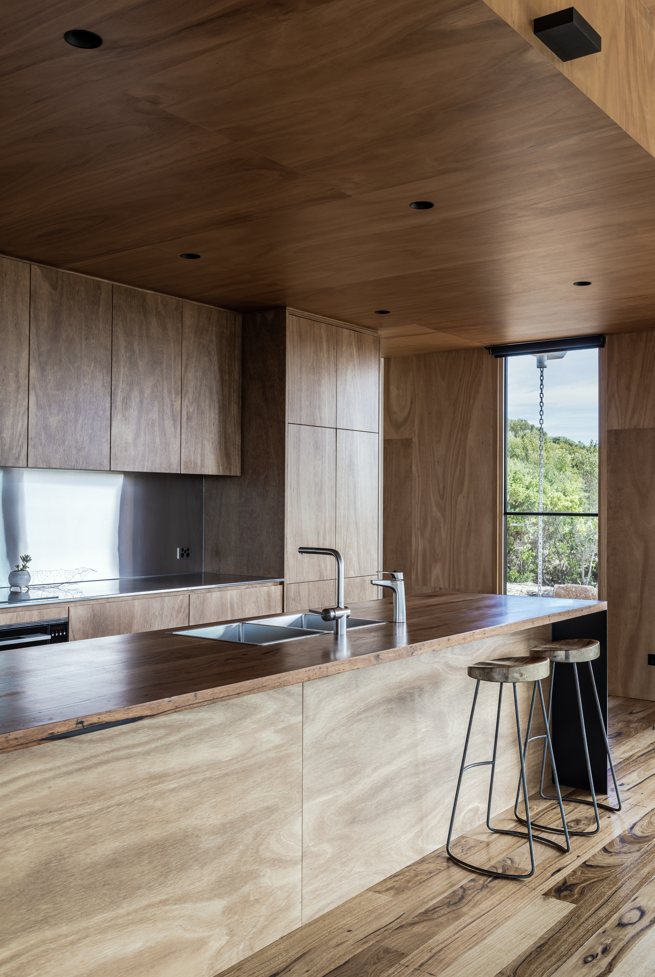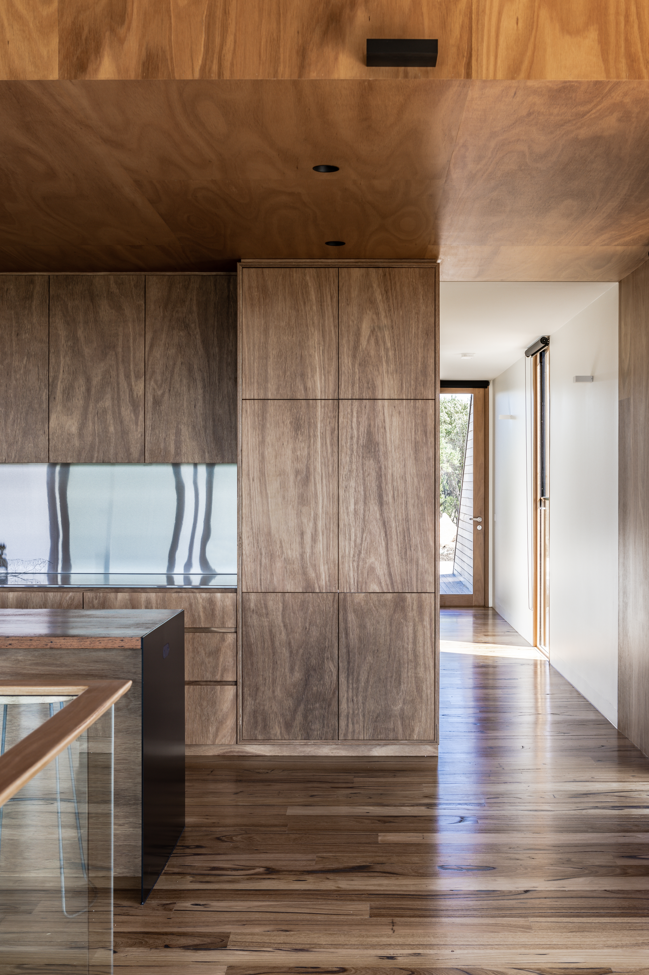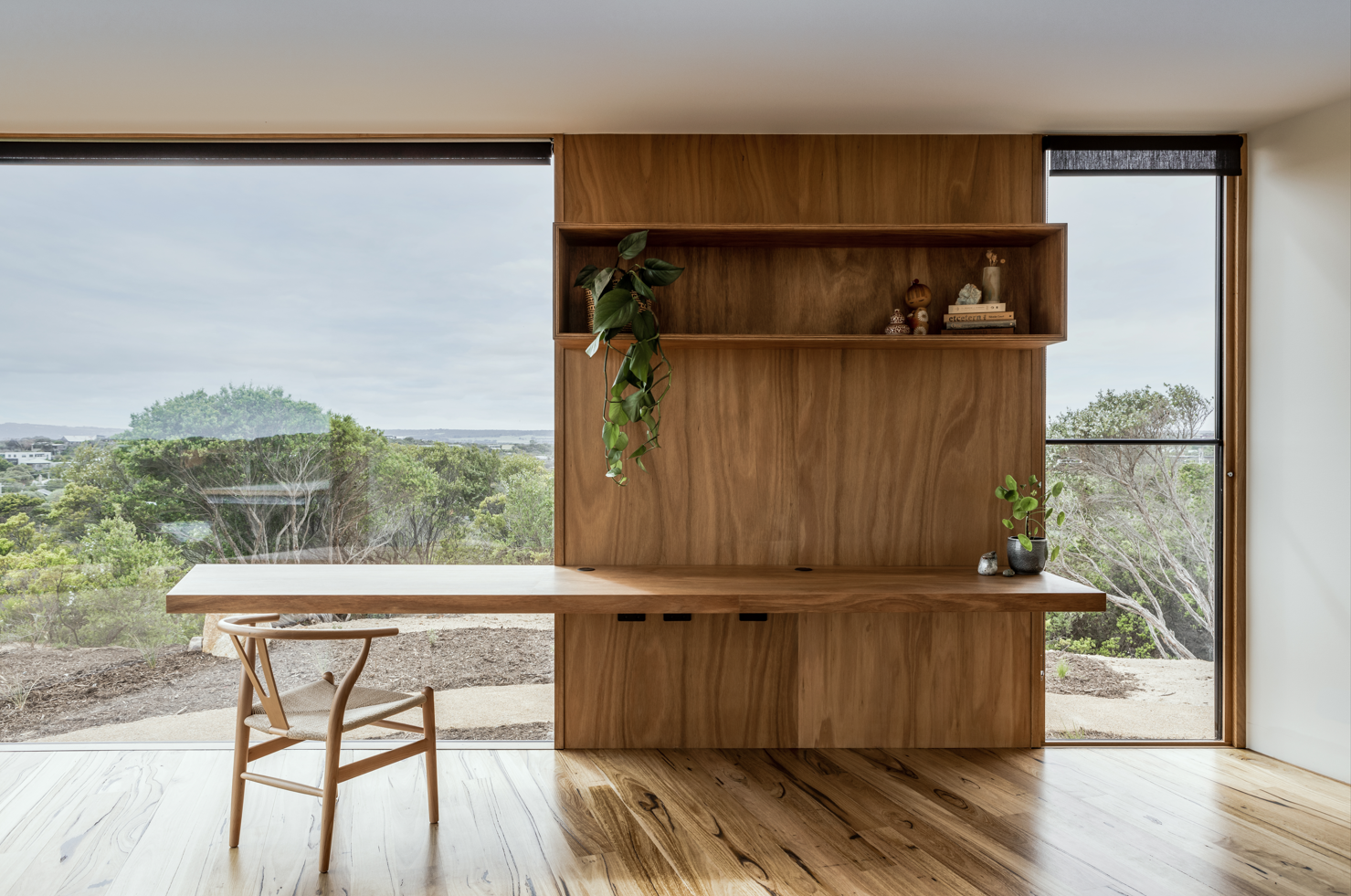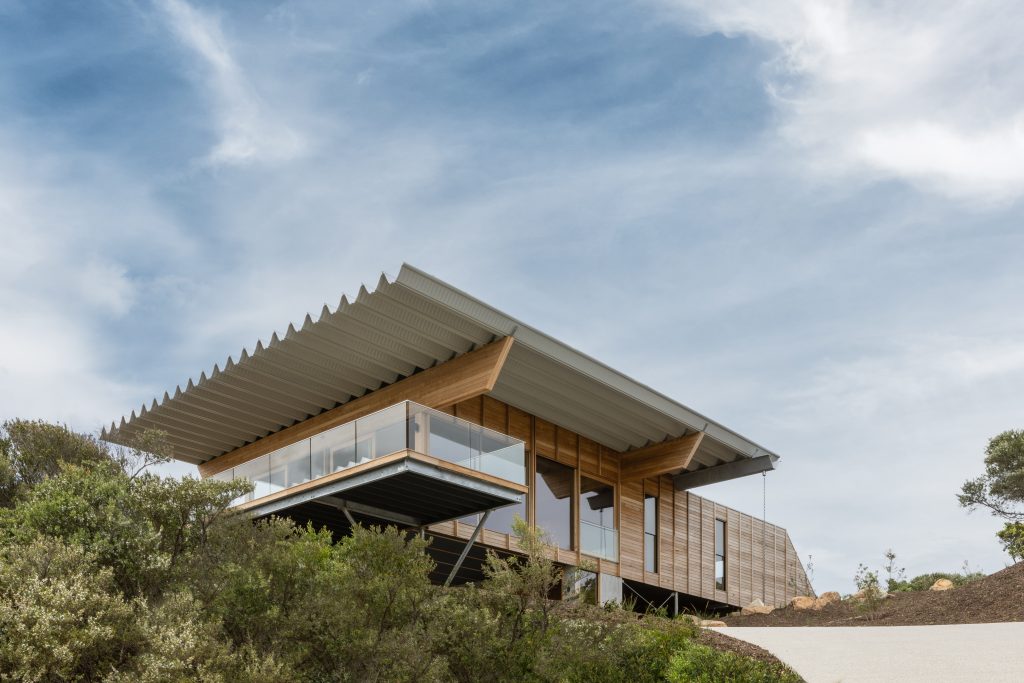
Perched to capitalise on views through the dipping dunes
Perched on the undulating sand dunes of the Mornington Peninsula National Park, the natural rugged landscape was undoubtedly a key inspiration for Dune House, which has been designed to engage with its environment through a carefully considered palette of natural materials and architectural detail that mimics the distinctive characteristics of the surroundings.
Elevated on slender steel poles the two-storey beach house capitalises on expansive views through dipping dunes, invigorating bushland and the stunning coastline of St Andrews Beach. It is set across 400sqm and consists of two bathrooms, four bedrooms, and a main living dining zone, which was conceived as a viewing platform to enable views across the entire terrain.
“The main living space was designed as a raised pavilion structure sitting high on the dune scape to allow views in all directions,” says architect Michael Baker, Director of Zenibaker Architects’ a local peninsula design studio specialising in unique, finely crafted architecture on the Mornington Peninsula.
Working in harmony with every element that surrounds it, the main structure has been designed to merge cohesively with its background. “Cantilever roof & deck elements contribute to a sense of lightness in this home designed to touch down gently on the natural sand dune topography,” says Michael.
In a relaxed style, the timber-clad beach house evokes traditional coastal shacks, reinterpreted through a flat skillion style roof form, silver-grey cement walls and timber, which was chosen to complement the textures and colours of the dune landscape. “We wanted to achieve a relaxed beach house feel that timber provides,” says Michael.
Internally a sense of balance is achieved by incorporating the visual elements of natural timber materials, working in harmony with the exterior materials and landscape, so that nothing feels out of place. “A natural material pallet was selected for the interior and exterior consisting of soft greys and natural timbers so that the house would merge with the environment both inside and out,” says Michael.
In keeping with the location’s natural beauty Big River Group’s premium plywood products were chosen due to their hard-wearing durability, unique visual qualities and natural, warm tones, providing a beautifully aesthetic interior.
ArmourPanel was used for the stair walls, the entry and the living and dining walls, and ceilings. “The ease of installation allowed for these large areas to be covered relatively quickly,” says Michael. Armourpanel is unique in appearance, with the species’ individual grain structures being preserved to maintain their natural characteristics so no two sheets look alike. “It’s the unique visual quality of the large ‘swirling’ crown grain and colour variation that creates a real feature wherever it is used.”
Big River’s premium engineered wood product ArmourCab is designed specifically for cabinetry and joinery applications and enabled a beautifully rich and warm kitchen. The kitchen cabinetry has been created with dramatic shadow line recesses, adding further dimension and depth to the finish.
While breathtaking, the natural dune scape can also deliver some harsh conditions so materials were selected purposefully, to not only evoke the existing topography but to offer protection against the extensive and immersive landscape.
“The large sheltering skillion roof overhead provides extensive weather protection in what can be a harsh coastal environment,” says Michael. “All the materials that we worked with were chosen with longevity in mind. Due to the location of the property and its exposure to the elements, we required robust materials that didn’t require a high level of maintenance.”
On a quest to find water views architect Michael Baker and his client, set out with a telescopic ladder and a determined resolution. A treacherous adventure that paid off, Dune House is a stunning response to site, emerging brilliantly alongside the unique constraints of its shifting sand dune environment.

